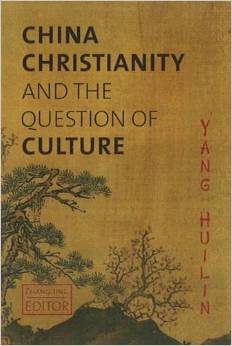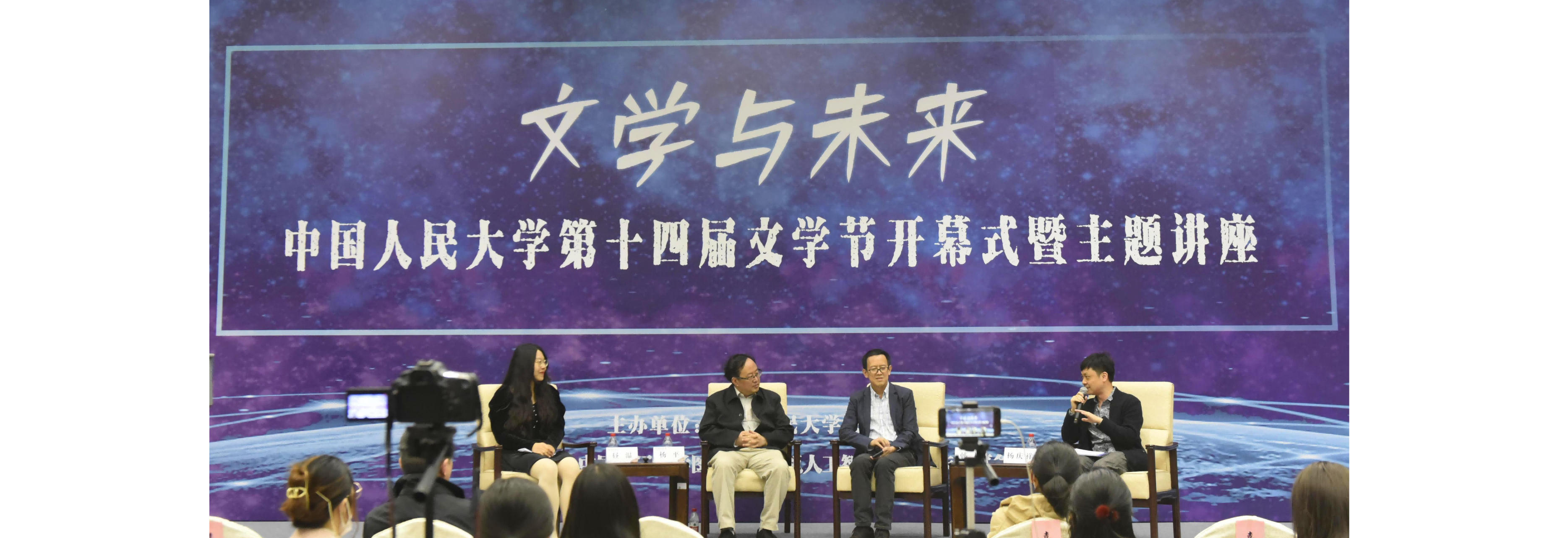【专著】杨慧林:China, Christianity, and the question of Culture
发布时间:2014-06-09
来源:杨慧林,比较文学与世界文学

出版社:Baylor University Press
出版年:2014
Contents
Foreword by David Lyle Jeffrey
Part I: Christianity and Chinese Culture
1 Language and Missionary Universities in China
2 Three Questions in the Dialogue between Buddhism andChristianity
3 Inculturation or Contextualization: Interpretation of Christianity in the Context of Chinese Culture
4 "Ethicized" Chinese-Language Christianity and the Meaning of Christian Ethics
5 The Contemporary Significance of Theological Ethics: The True Problems Elicited by Auschwitz and the Cultural Revolution
Part II: Theology and Humanities
6 The Value of Theology in Humanities: Possible Approaches to Sino-Christian Theology
7 The Potential Value of Contemporary Theology for Literary Theories
8 Six Problem Domains in Western Marxists’ Theory on Religion
9 To Reverse Our Premise with the Perverse Core: A Response to Žižek’s "Theology" in Chinese Context
10 From "Difference" to "the Other":A Theological Reading of Heidegger and Derrida
Part III: Scriptural Reasoning
11 James Legge: Between Literature and Religion
12 The Possibilities and Values of "Scriptural Reasoning" between China and the West
13 Scriptural Reasoning and the Hermeneutical Circle
14 The Chinese Union Version of the Bible and Its Hermeneutical Analysis
Notes
Works Cited
Details of Previous Publications
Foreword
The reputation of nineteenth- and early twentieth-century European and American missionaries to China has been in very low repute in China itself for a long time. In public discourse for more than half a century, the missionaries have typically been characterized as “stalking horses for imperialist capitalism and gun-boat diplomacy.” One may still read such remarks occasionally in the press, and it is certainly to be found in some school textbooks, but no longer is it the only view. A different, far more generous accounting of the work of Western missionaries has begun to appear in the scholarship of Chinese cultural and intellectual historians. This book, which presents translated re-evaluative essays by one of China’s leading academics, well represents this recent turn. Though we may have ourselves largely forgotten it, Yang Huilin reminds us forcibly that the missionaries accomplished intellectual as well as religious work of abiding value.
Over the past three decades, with scholarship and reportage on both sides of the Pacific gradually increasing in both volume and interest, we have been re-familiarized with at least a portion of the legacy of nineteenth-and early twentieth-century missionary activities in China. To the Western consciousness during the second half of the twentieth century, this legacy had been occluded because of the great political changes after 1949. In fact, many on this side of the Pacific assumed the work of the Christian missionaries had been largely extinguished by those events. After Deng Xiaoping chose a policy of openness to the rest of the world in 1979, it became apparent that Christian communities, though certainly marginalized, had not vanished. Indeed, they were still very much present all over China—and growing. Moreover, because the foreign missionaries had been gone for thirty years or more, Christians in both Protestant and Catholic communions had developed stronger indigenous leadership. Various types of assemblies and congregations flourished under more distinctly Chinese models of acculturation, though mostly in rural areas.
In the 1990s Christianity began to take hold in urban China. In part this owed to the general movement of peasants and laborers to the cities, where, with a burgeoning manufacturing economy, jobs were more plentiful. But something else was going on; academic visitors to China could see that there was a dramatic growth of interest in Christianity among university students and faculty. This phenomenon was not without diverse motives and social complexities. Some of those interested made a loose connection of Christian ethics with Western prosperity, however ironic this must now seem to have been among Chinese who have become better informed about contemporary European and North American cultures; Christian ethical norms are far less influential here than they once were, even at the time when Chinese Christians lost most of their contact with fellow believers in the West. On the other hand, ideological Marxism now has more currency in Western intellectual circles than among intellectuals in China, while in European and North American universities Christianity has been comparatively marginalized. Marxist ideology has, of course, suffered severe practical disappointments in China. A considerable number of Chinese intellectuals—disillusioned with social and economic results of the Marxist experiment, yet still possessed in some degree by its high ideals—have subsequently been attracted to the idealism and social practice of Chinese Christians. For some, disillusioned Marxist altruism seems to have served as a kind of John the Baptist to their personal engagement of Christian faith and practice. For others, independently of any personal belief, other factors, such as concern about the negative features of the market capitalism that now dominates China, have prompted academic research in Christian cultural studies.
A chief feature of such study is, as one might expect, a desire to consider not only the historical development of Christian theology in the West, but the local history of Christianity in China particularly. The role of Christian missionaries in the founding and early development of Chinese universities is one area of strong interest, and it is producing a renewed appreciation of the work of Christian missionaries from Matteo Ricci and the Jesuits during the sixteenth century through to the European and North American Protestant missionaries of the nineteenth and twentieth centuries. The translation and publication in the West of Chinese classical texts by authors such as Joshua Marshman, the Particular Baptist, and James Legge, the Scottish Congregationalist, may have been undertaken as a means of preparing missionaries to translate the Bible, but the quality of their work and its value in introducing the “Golden Treasury” of Chinese literature to the world is now being acknowledged as worthy of recognition in China. Rehabilitation of such history necessarily contends with the dominant earlier view that the missionaries were for the most part the avantgarde for Western imperialism. Instead, it asks the question, “What in the missionaries’ work has produced enduring good for China?” In this regard, philosophically, considerable attention has been given to the moral and theological resources of Christian tradition; here the focus has been upon an indigenous acculturation of Christian theology, fully cognizant of its long international history, but particularly attentive to specifically Chinese contexts of appropriation. These scholarly developments in some ways parallel the evolution of practice in the churches. Since the early 1990s, Professor Yang Huilin, formerly dean of Chinese literary studies and now academic vice-president of Renmin University, has been a leader in the growth of scholarship in respect to both the evolution of Christian worship communities and the historical reappraisal of the intellectual work of earlier missionaries who apprenticed themselves to a serious study of Chinese literature and culture. As founding editor of the Journal of Christian Cultural Studies and director of Renmin University of China’s Center for the Study of Christian Culture, he has been a leader and facilitator for the work of Chinese scholars working in the recovery and examination of all facets of the historical record. He has been responsible for creating important international conferences bringing Western and Chinese scholars together for fruitful dialogue and the sharing of resources. But he has also been at the forefront of development for what is now called Sino-Christian theological studies, an interdisciplinary community across China involving philosophers, literary scholars, and historians. With Daniel H. N. Yeung, he coauthored and edited Sino-Christian Studies in China (2006) and in this area of intellectual endeavor also has organized some remarkably vigorous national and international conferences and publications. It would be difficult to find a scholar in China who has contributed more to critical reflection on the acculturation of Christianity in China over the past three decades.
This present volume represents something of the range of his work on the contextualization of Christian thought in China today. Many of the essays here represent a stock-taking retrospect on the process by which, in both successful and unsuccessful ventures, Christianity has become a highly important intellectual subject in China. We in the West have much to learn and to profit from in the essays here collected, both through seeing the missionary legacy in a new light and in appreciation of the foundation some aspects of that legacy have afforded to the development of a now vigorous Sino-Christian theology.
David Lyle Jeffrey
Baylor University


